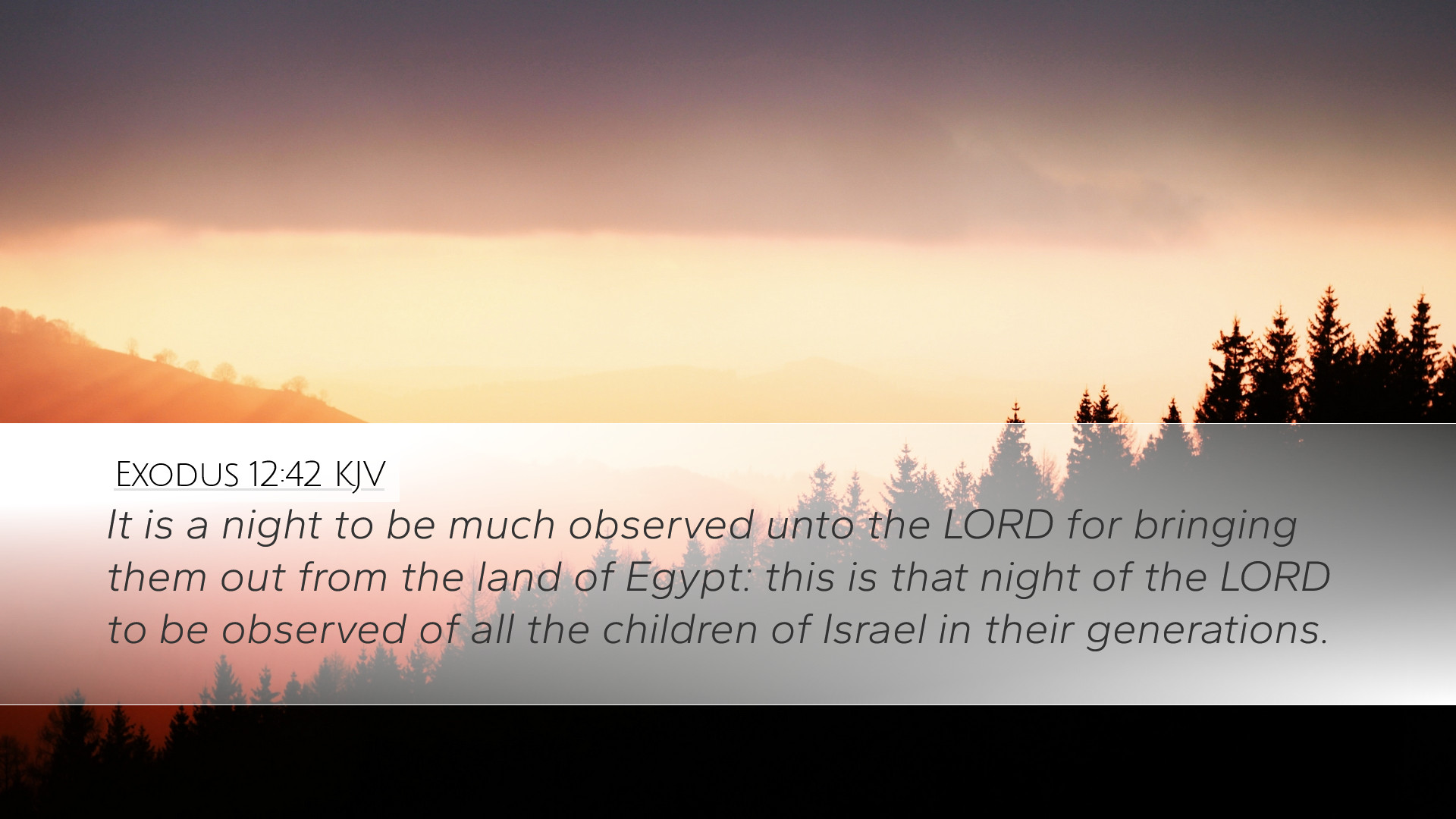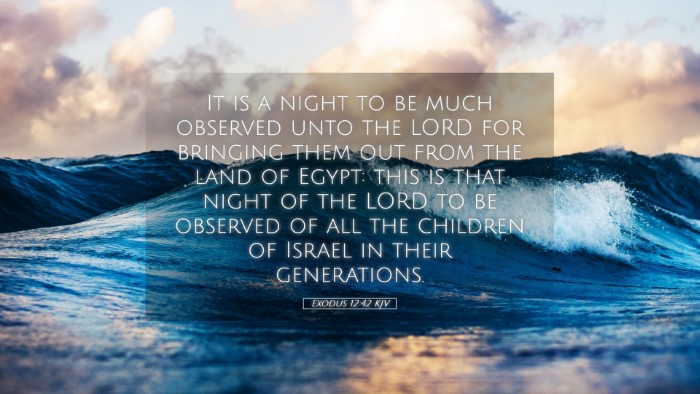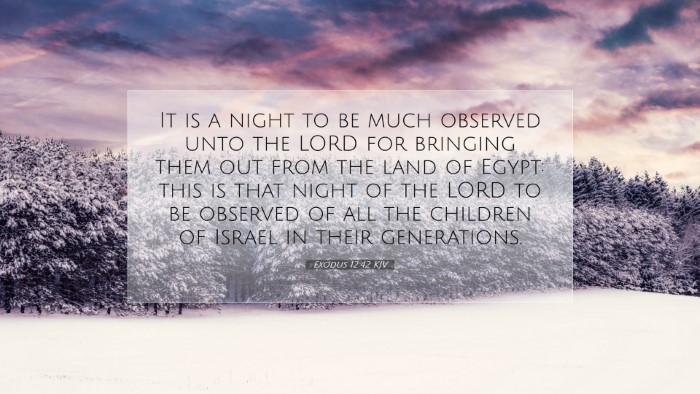Exodus 12:42 - Commentary Summary
Verse: Exodus 12:42 - "It is a night to be much observed unto the LORD for bringing them out from the land of Egypt: this is that night of the LORD to be observed of all the children of Israel in their generations."
Introduction
Exodus 12:42 marks a significant moment in Israel's history, encapsulating the essence of their deliverance from slavery in Egypt. This verse emphasizes the importance of remembrance, which is a recurrent theme throughout the Scriptures.
Observations from Public Domain Commentaries
-
Matthew Henry:
Matthew Henry notes that this night was to be a night of vigil and observation, underscoring God’s power in delivering His people. He describes the Passover as not merely a historical event but a continuous reminder of God's providence and judgment. The Israelites were to remember this night as a demonstration of divine intervention that changed their status from bondage to freedom.
-
Albert Barnes:
Albert Barnes reflects on the theological implications of the Passover. He argues that "it was a night to be much observed unto the LORD" signifies a deeper sanctification of the event. Barnes emphasizes that the observance of this night was not just a ritual but a profound acknowledgment of God’s grace and mercy. He also highlights the phrase "for bringing them out" as a reminder of God's covenant fidelity and the fulfillment of His promises.
-
Adam Clarke:
Adam Clarke elaborates on the cultural significance of the Passover night. He discusses the instructions given to the Israelites regarding the lamb and the blood on their doorposts as an act of obedience that secured their safety. Clarke points out that this night commemorates the beginning of Jewish national identity and serves as a model for the future generations in remembering God’s saving acts.
Theological Implications
This verse carries rich theological implications concerning the nature of God as a delivering figure. Both Henry and Barnes emphasize that God's deliverance is a central theme not only in this event but throughout the entirety of Scripture. It sets a precedent for understanding redemption in Christian theology, where Christ’s sacrifice mirrors the sacrificial lamb of Passover.
Covenant Remembrance
By instituting the Passover as a perpetual observance, God invites His people into a covenant relationship marked by remembrance. Clarke’s commentary highlights that this observance is integral to the identity of Israel as it roots the community in a shared narrative of salvation.
Implications for Today’s Believers
This verse serves as a poignant reminder for contemporary believers regarding the need to observe and remember the fundamental acts of God in their lives. Much like the Israelites, modern Christians are called to reflect on God’s past faithfulness, as emphasized by Henry’s call for continual observance. In communion, for instance, believers recall Christ’s sacrifice, fulfilling the call to remember God's redeeming work.
Practical Application
-
1. Cultivating a Spirit of Remembrance:
Churches and communities can foster a culture of remembrance through regular observances, celebrations, and teachings that anchor their faith on God's past deeds.
-
2. Understanding Personal Deliverance:
Encourage individuals to articulate their personal testimonies of deliverance and transformation, paralleling the corporate remembering that Exodus 12:42 stresses.
-
3. The Role of Rituals:
Examine the role of rituals in worship and community life, considering how they can be designed to bring communal and personal acknowledgment of God's work across generations.
Conclusion
Exodus 12:42 encapsulates a transformative moment for Israel, demanding a response of remembrance and worship. Insights from Matthew Henry, Albert Barnes, and Adam Clarke provide a multi-faceted understanding of this passage, urging believers to recognize the historical and spiritual significance of God’s deliverance, both in ancient times and in contemporary faith practices. In doing so, the Church not only honors the legacy of Israel but also affirms its spiritual heritage as it continues to observe and celebrate God’s mighty acts.


